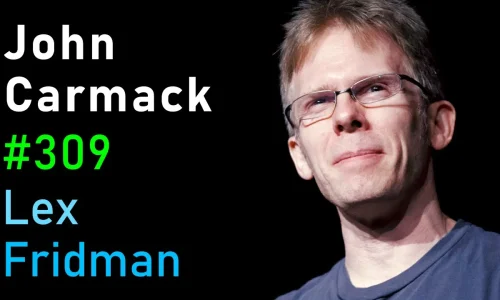See all Lex Fridman transcripts on Youtube

John Carmack: Doom, Quake, VR, AGI, Programming, Video Games, and Rockets | Lex Fridman Podcast #309
5 hours 14 minutes 50 seconds
🇬🇧 English

Omnivision Solutions Ltd
- Getting Started
- Create Transcript
- Pricing
- FAQs
- Recent Transcriptions
- Roadmap